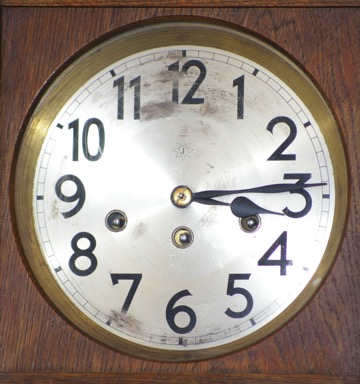
My favourite Star Trek episodes are the ones where time gets weird. Causality loops, time paradoxes, alternate timelines - I love them all. Years ago, when I was involved in a minor fender bender in a taxi, I was amazed at how time slowed during the event. I watched broken glass shatter in slow motion and then wash up over the hood like a wave of water, then wash back out towards the other car again. I was amazed at how much detail I picked up in what I knew was just a second or two of time - each individual bit of glass discernible. After a moment, time became normal again.
I suspect most of us have experienced time's inconstancy. When we were kids, the school holidays were endless, yet now, vacations zip by like shooting stars.
Time bends and changes according to our activities - each with its own rhythm and pace - different for each of us. In meditation we can speed up time or slow it down according to our needs. Some athletes use meditative disciplines that ask for intense focus to stretch time out when they are "in the zone" in competition. Other meditations may go by so quickly we wonder that half an hour has passed.
When under stress, time becomes much slower, just as it did for me in that minor accident. In dreams, time takes on dimensions we can't begin to fathom in waking life. I learned to ride a bicycle in a dream. I packed hours of learning into minutes of the dream and awakened to live the full value of what I'd learned.
There are many theories that try to answer the question of why time is so inconstant. Many of them agree that it's the quality of the experience that determines how long it lasts. Children pack new experiences into each hour of the day, laying down new neural pathways in their brains as they do. They are very awake to the world around them. They live with great intensity. Events have more meaning. As we get older, we tend to have less novelty, less intricacy, less intensity - life has less meaning.
So if we want any experience to last the way our school holidays did when we were little, we might act a bit more like kids and a bit less like adults: Take a deeper interest in what's in front of us. Cram new experiences into our days. Learn new stuff. Engage different areas of our brains. Practice meditations that let us shift out of our normal consciousness. Turn off the tv or put down the book and go for a walk instead.
Time may not get as weird as it does on Star Trek, but perhaps the more we play with time, the more time we may have to play.
First published September 2009 in my free monthly email newsletter, Starry Night. Sign up here.